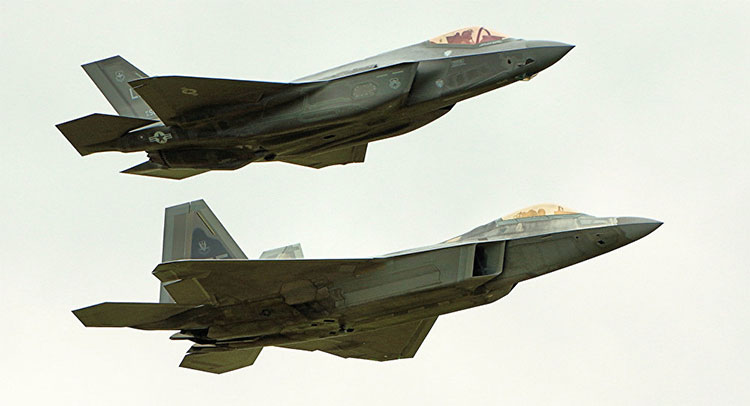China declared a successful patent for a new radar that could 'catch' the F-35
A group of Chinese military technology researchers said they have successfully built a radar that can detect stealth aircraft, which cannot be detected by conventional radar types.
Liu Yongtan, the head of the radar development team, revealed in an interview last month that their high frequency face wave radar (HFSWR) could detect stealth aircraft at range. very far in any weather condition.

Will F-35 be captured by Chinese radar?
In fact, HFSWR is no stranger to military countries, because this is one of the first types of radar used. However in the 1950s this type of radar was discontinued due to the early warning systems (AWACS) becoming increasingly popular and scientists did not overcome the weaknesses of HFSWR, namely the language. noise and cannot be relocated to many different locations. But Mr. Liu said his group had removed these problems.
According to Liu, modern stealth aircraft such as the US F-35 and F-22 as well as the J-20 and J-31 are designed to avoid detection by microwaves. Being widely used, they are completely incapable of avoiding long-range radars.
Unlike conventional radar, HFSWR uses low frequency waves, and due to diffraction phenomenon, this long wave does not move in a straight line but according to the curvature of the Earth's surface, thereby causing the types of radars. This can effectively detect objects from across the horizon.
At this time, however, the HFSWR radar systems can only operate at fixed stations below ground because the structure of this radar is very large. Another problem that previously encountered with HFSWR radar is that it can only determine the direction of an object and not the exact location of the object.
However, a Chinese military expert, Shi Lao, told the morning Chinese newspaper (SCMP) that the new radar would allow China to have a low-cost and high-powered weapon. operating up to more than 400km. If used in conjunction with other conventional radars, it will effectively prevent any air and sea attacks.
China's Global Times immediately called the new HFSWR radar system 'the first defense of our country'. Thanks to the new radar, Liu last month was awarded the biggest prize in science in China with 8 million yuan ($ 1.17 million).
- Radar is unique in the world of Russia
- China's 'cheap' stealth technology can outmaneuver military radar systems
- Radar in the backpack
- Russian radar can detect metal balls from 2,000km
- Why is Russian radar blind?
- Equip the radar for the phone
- Chinese patent pigeon UAV radar blindfold
- Low cost radar
- 21 million pounds for space radar project
- Radar has a high crossborder
- Awarded the 2014 patent contest
- Aviation reconnaissance before the radar was born
 The US company is about to build a supersonic passenger plane of 6,000km / h
The US company is about to build a supersonic passenger plane of 6,000km / h Japan develops avatar robot as in fiction film
Japan develops avatar robot as in fiction film Australia tested the world's first mango picking robot
Australia tested the world's first mango picking robot America develops technology to separate water from animal waste
America develops technology to separate water from animal waste